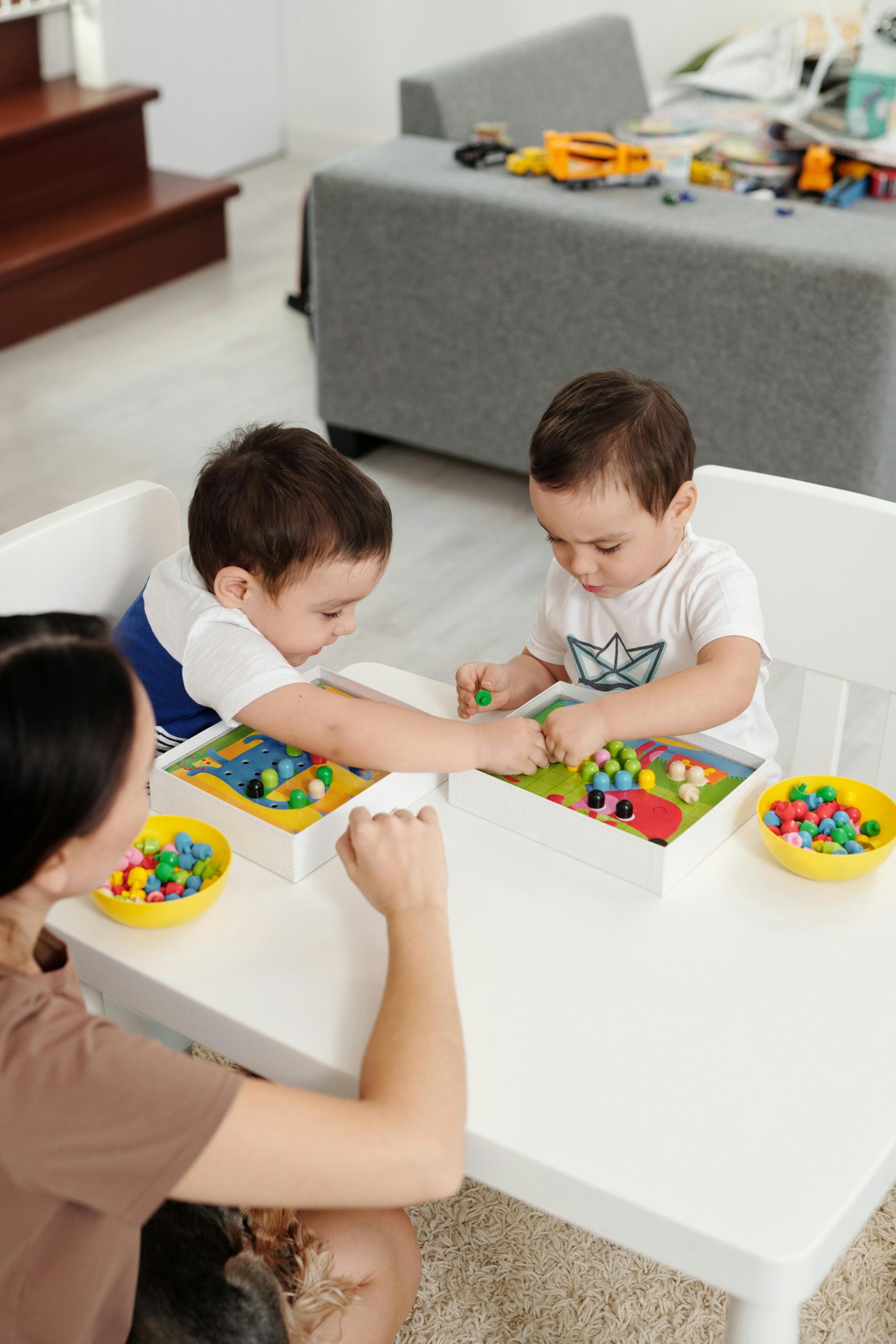Choosing the right nursery marks one of your most important parenting decisions. According to Ofsted’s 2025 Early Years Report, 89% of outstanding nurseries demonstrate research-informed practice and home-like environments. Quality early education builds essential foundations for your child’s development, fostering curiosity, social skills, and emotional resilience. What matters most to you when evaluating potential nurseries for your little one?
What Makes an Outstanding Early Years Provider Stand Out
Choosing the right early years provider means looking beyond basic childcare to find a setting that truly nurtures your child’s development. Outstanding providers distinguish themselves through their commitment to research-informed educational practices that recognise how young minds learn and grow.
Topic to read : Why choose landscape gardeners Kent: the best transformation for your garden?
The most exceptional early years settings create environments that feel both stimulating and secure. These spaces encourage natural curiosity while maintaining the warmth and comfort children need to thrive. Every corner is thoughtfully designed to promote exploration, from reading nooks that inspire storytelling to creative areas where imagination flourishes.
What truly sets premium providers apart is their play-to-learn philosophy. Rather than forcing academic concepts, outstanding educators understand that children aged 18 months to 5 years learn best through purposeful play. They skillfully weave learning opportunities into daily activities, helping children develop critical thinking skills naturally.
Also read : Revitalize your home with kitchen renovations in bromley croydon
The quality of educators makes all the difference. Exceptional early years providers invest in qualified professionals who understand child development deeply. These educators don’t just supervise, they actively engage, asking open-ended questions that encourage children to think, reason, and express their ideas with confidence. A dedicated Nursery in Catford can transform these crucial early years into a journey of discovery and growth.
The Ideal Age Range and Educational Approach for Early Development
The period between 18 months and 5 years represents the most critical window for cognitive and social development in a child’s life. During these formative years, young minds are exceptionally receptive to learning, with neural pathways developing at an unprecedented rate that will shape their future academic success and emotional well-being.
At this crucial stage, children’s brains form over one million neural connections every second. This rapid development makes specialized early education not just beneficial, but essential for maximizing their potential. A nurturing environment that combines structured learning with natural play allows toddlers and preschoolers to develop critical thinking skills while building confidence and social awareness.
Research-informed educational approaches recognize that children learn best through exploration and discovery. By integrating play-based learning with developmentally appropriate challenges, young learners naturally acquire essential skills including language development, problem-solving abilities, and emotional regulation. This foundation proves invaluable when children transition to primary school.
The specialized care provided during these early years creates lasting benefits that extend far beyond academic preparation. Children who experience quality early education demonstrate stronger social skills, improved self-esteem, and better adaptation to new environments throughout their educational journey.
Creating a Home-Like Environment: Why It Matters
The physical environment plays a crucial role in shaping a child’s early learning experience. When children feel emotionally secure and comfortable in their surroundings, they naturally become more confident explorers, willing to take the risks that learning requires.
A home-like atmosphere removes the institutional barriers that can make young children feel anxious or withdrawn. Soft furnishings, natural lighting, and cozy reading corners create spaces where children can decompress when feeling overwhelmed. This sense of safety directly impacts their ability to engage with educational activities and form meaningful relationships with their caregivers.
Research consistently shows that children thrive when they feel a sense of belonging. In environments that mirror the warmth of home, children are more likely to express themselves freely, ask questions, and approach new challenges with enthusiasm. This emotional foundation becomes the bedrock for all future academic and social development.
The balance between nurturing care and educational excellence doesn’t require compromise. When children feel genuinely cared for, they naturally become more receptive to learning opportunities, creating an upward spiral of confidence and achievement that serves them throughout their educational journey.
Essential Criteria When Choosing Your Child’s Educational Setting
Selecting the right nursery for your child represents one of the most significant decisions you’ll make as a parent. The quality of early years education directly impacts your child’s development, social skills, and future learning potential.
When evaluating potential childcare providers, focus on these fundamental criteria to ensure you make an informed choice:
- Staff qualifications and experience – Look for qualified early years practitioners with relevant training in child development and first aid certification
- Educational approach – Assess whether the curriculum aligns with your values, emphasizing play-based learning that encourages critical thinking and creativity
- Adult-to-child ratios – Ensure adequate supervision levels that comply with Ofsted requirements while providing individualized attention
- Physical environment – Evaluate safety standards, cleanliness, outdoor spaces, and age-appropriate equipment that creates a stimulating yet secure setting
- Communication practices – Consider how regularly staff update parents about daily activities, milestones, and any concerns through reports or digital platforms
- References and inspection – Review recent Ofsted reports and speak with current families to understand their experiences and satisfaction levels
Taking time to thoroughly assess these elements will help you identify a nursery that truly supports your child’s individual growth and development needs.
Understanding Costs and Practical Considerations in South East London
Nursery fees in the Catford area typically range from £60 to £85 per day, depending on the facility’s approach and educational focus. Premium providers offering research-informed curricula and specialized early years programs generally position themselves in the higher bracket, reflecting their investment in qualified educators and enriched learning environments.
Parents can access various financial support options to help manage childcare costs. Government funding includes 15 hours of free childcare for eligible two-year-olds and up to 30 hours for all three and four-year-olds. Many nurseries also offer flexible payment plans and accept childcare vouchers from employers, making quality early education more accessible to working families.
The convenient location at Thornsbeach Road provides excellent accessibility for families across South East London. Parents from Lewisham, Forest Hill, and surrounding areas find the transport links particularly convenient, with multiple bus routes and rail connections nearby. Most nurseries offer flexible operating hours between 7:30 AM and 6:30 PM to accommodate varying work schedules.
The enrollment process typically begins with arranging a visit to discuss your child’s individual needs and explore the learning environment. Early registration is recommended, particularly for September intakes, as quality childcare places in the area remain highly sought after.
Frequently Asked Questions About Nursery Selection
What are the best nursery schools in Catford for toddlers?
The best nurseries in Catford offer research-informed curricula and specialized care for toddlers aged 18 months onwards. Look for providers emphasizing play-based learning, quality educators, and nurturing environments that support early development.
How much does nursery cost in Catford London?
Nursery fees in Catford typically range from £40-80 per day, varying by provider and services offered. Many quality nurseries accept government funding schemes, including 15 or 30 hours free childcare for eligible families.
What age can my child start nursery in Catford?
Most Catford nurseries welcome children from 18 months to 5 years old. Early enrollment helps toddlers develop social skills and prepares them for school through structured play and educational activities.
Which nurseries in Catford have availability for September?
September availability varies by nursery, so contact providers early in the year. Established nurseries with home-like environments often maintain waiting lists due to high demand for quality childcare places.
What should I look for when visiting nurseries in Catford?
Observe the learning environment, staff interactions with children, and educational approach. Quality nurseries demonstrate critical thinking activities, safe facilities, and warm, professional care that makes children feel secure and engaged.











